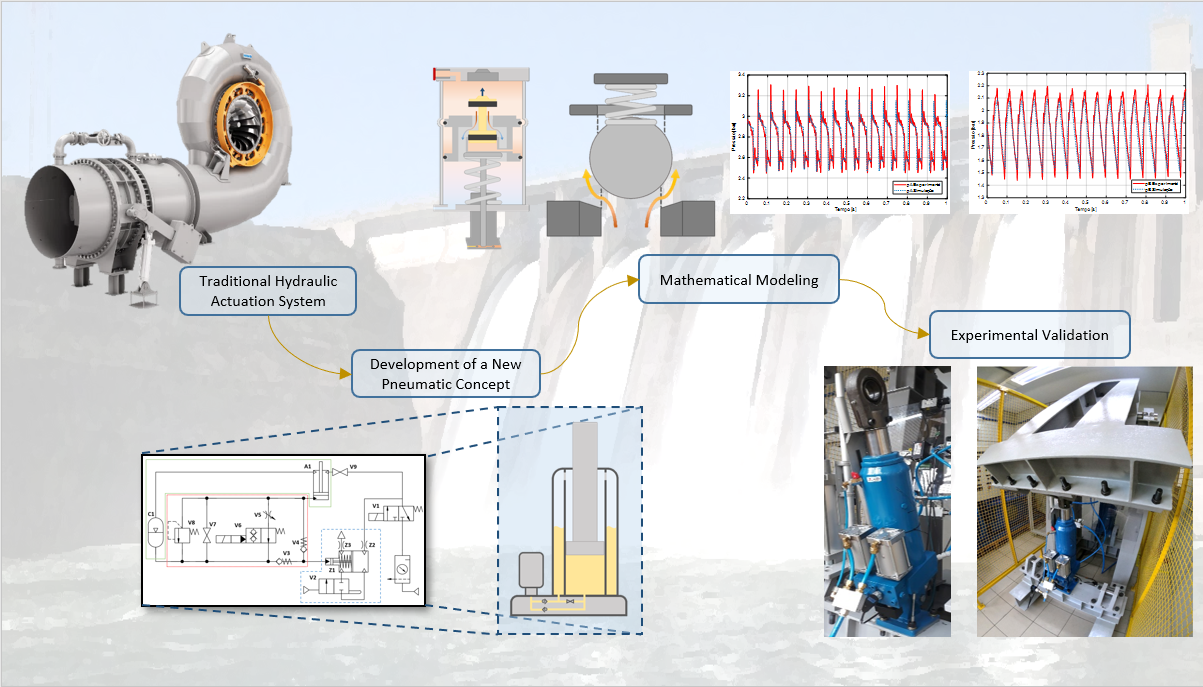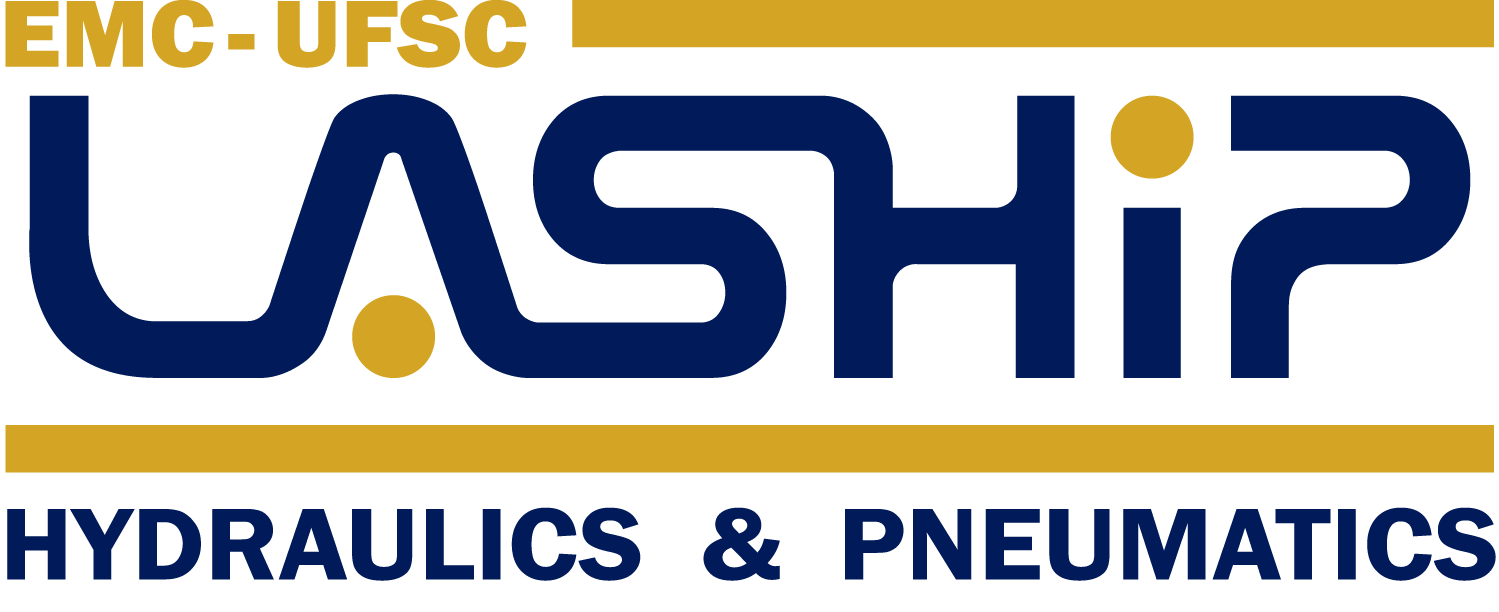Candidate: Talles Augusto Bragagnolo Spada 
Program: UFSC / POSMEC
Date: December, 2020
Advisor: Victor Juliano De Negri
Abstract: The national demand for electric energy is growing up each day, a trend that should be maintained for years to come. Due to the fact that Brazil has one of the biggest energy production potentials through hydropower plants, the search for new technologies that guarantee the sustainable use of this natural resource is constant. This research proposes a new system dedicated to operate the turbine inlet valve in small hydropower plants, being part of a complete automation and control system using compressed air as a power source. The current commercial pneumatic technologies were analyzed considering application requirements. The proposed system is composed by a hydropneumatic jack, equipment that includes the advantages of the pneumatic components and the robustness of hydraulic technology. Working with a hydropneumatic jack manufacturer, some adjustments were made so that it could meet the application requirements from the hydropower plant where it will be installed. The system will be responsible for actuating the turbine inlet valve from the auxiliary group at Salto Grande hydropower plant, São Paulo, managed by CTG Brazil nowadays. The valve is a butterfly type with Ø 36 inches and is subjected to water column of 18.5 meters. It is installed before the generation group, composed by a horizontal Francis Turbine and an asynchronous generator, totalizing 438 kW of installed power. In order to assist the equipment design process, a mathematical model using the software MATLAB/Simulink was built. This model is capable to reproduce the system dynamic and the operational behavior impact from project changes. The model validation was done by experimental tests, comparing data from the simulation and the ones acquired through testing. Using a testing platform, the hydropneumatic system was subjected to similar operational conditions from the hydropower plant. The results obtained reinforce the system’s effectiveness for the proposed application, being a good alternative to the conventional hydraulic systems, providing a cleaner and sustainable operation, besides the attractive cost, an important factor that supports its acceptance by the clients, facilitating its market entry.
Referência: SPADA, T. A. B. Desenvolvimento Teórico-Experimental de Um Sistema Para o Acionamento de Válvulas de Adução em PCHs Baseado em Tecnologia Pneumática. 2020. 133 p. Dissertação (Mestrado em Engenharia Mecânica). Universidade Federal de Santa Catarina, Florianópolis.



